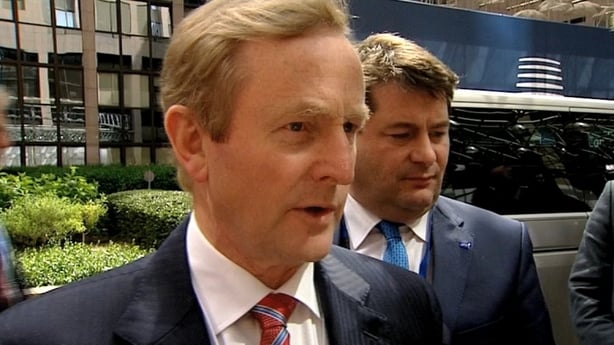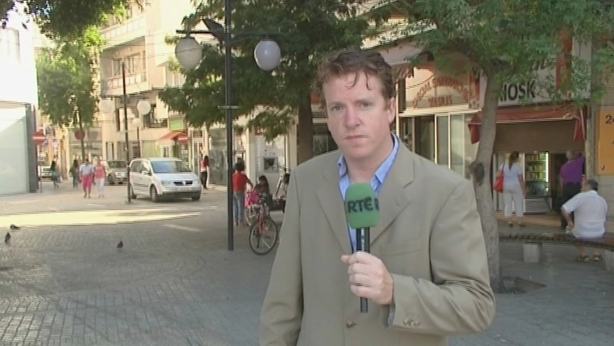EU leaders spent two hours of unscheduled talks on the Greek debt crisis at their summit in Brussels yesterday, however, there was no breakthrough.
With the possibility of a Greek default coming as soon as next Tuesday, frustration and resentment at the deadlocked negotiating process has now become public.
The Austrian Finance Minister told journalists the government in Athens was dealing “carelessly” with its country, while a Syriza MEP claimed international creditors wanted “Greece's humiliation and the fall of the Tsipras government”.
Despite hours of talks between the Greek Prime Minister and international creditors, another meeting of the eurozone finance ministers, and two hours of talks with EU leaders, Greece is no closer to securing a deal on its debt.
EU officials said Mr Tsipras urged his fellow EU leaders to take responsibility and not leave Greece's fate in the hands of the International Monetary Fund, but they refused to intervene and argued the talks must continue to be conducted by finance ministers.
Later today Greek negotiators will resume contacts with the EU, IMF and ECB in a bid to narrow the points of differences on issues such as pensions, VAT and government spending.
If successful, eurozone finance ministers are prepared to return to Brussels on Saturday.
The head of the eurozone finance ministers group, Jeroen Dijsselbloem, tried to strike a note of optimism when he said: "The door is still open for the Greek side to come with new proposals."
Greek Finance Minister Yanis Varoufakis told reporters: “We'll continue until we find a solution."
However, time is rapidly running out for these negotiations, and tempers are fraying.
Greece could default as early as Tuesday if it does not have the money to replay €1.6bn to the IMF.
Speaking on arrival in Brussels for the EU summit, Taoiseach Enda Kenny said: "Clearly you are in the closing hours of making decisions here. It's in the red sector."
Asked whether Ireland, in principle, would support the continuing Greek demand for debt relief, the Taoiseach replied simply: "No."
Giving his view on yet another suspension of the eurozone finance ministers meeting this afternoon, Mr Kenny said it appeared there was "a complication about putting credible papers on the table.
"It is very important that the propositions, which are tabled, make economic sense and that they are financially sustainable and that they are fair."
Citing Ireland's example in negotiations with international creditors, the Taoiseach said: ".. we did not increase income tax; we did not increase VAT; and we did not increase PRSI. But we put up alternatives to those measure that were proposed."
Mr Kenny argued this Irish policy was put in place "… in order to keep a pro-growth policy, and make our country competitive, and grow our economy, and provide jobs for our people."

Taking issue with the Greek proposals for higher taxes on people and companies, Mr Kenny said: "It's difficult to see the beneficial effect of measures that increase the tax on labour; that increase income tax; and that increase PRSI. These are not in the interest of pro-growth.'
He added: "Obviously that's what the [Finance Minister] discussions are about. But I think there is a frustration among the Minister for Finance that they don't have figures they can work off; and suggest better proposals that might be better in growing the economy of Greece and providing jobs for their people."
An Irish Government official clarified that the Taoiseach "continues to support debt reprofiling for Greece", in any deal with its international lender.
The official cited Ireland's promissory note deal was an example of debt reprofiling "that can ease the burden of debt on taxpayers and give a small economy the space to grow".
Analysis: Europe Correspondent Paul Cunningham

The hope is a deal can be concluded before eurozone Finance Ministers meet at lunchtime, but no one has any great confidence this new deadline will be met.
Yesterday, there was a cautious welcome to Greece’s proposals but there were difficulties as far as some of the countries did not see it the same way. One person to look to is the German Finance Minister, and when he came to Brussels he said not much progress had been made.
It also appears that the IMF in particular had major concerns on Greece’s tax take measures.
The IMF is concerned that they’ve heard previous promises from Greece and Greece before and tax collection has not worked out well.
The IMF does not believe Greece will raise enough in taxes to meet their targets and that’s why the IMF is insisting on more cuts. However, for Syriza that’s just not going to work – that’s why the talks are deadlocked and that’s why the Greek government say they remain firm in their positions.

